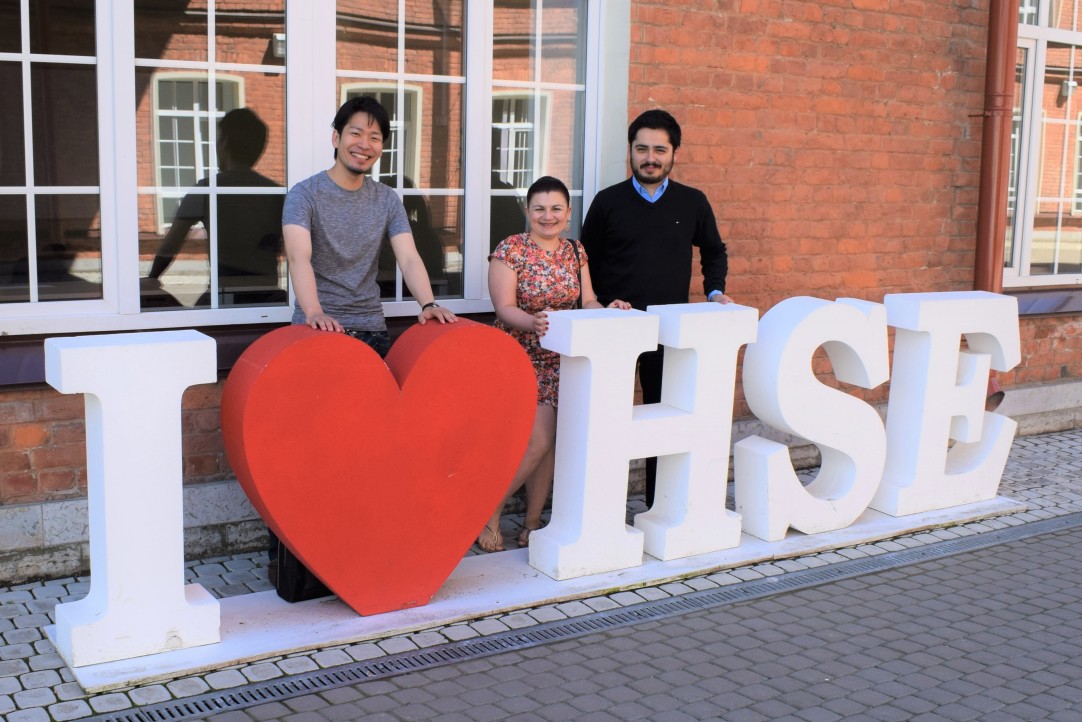Keep Calm and Study Russia
The UK and Russia relations have been staying in the world’s headlines, and it is evermore crucial not to burn bridges between two countries, but build them. It seems there is a sure remedy for mutual understanding – academic exchange programmes. Let’s see what King’s Russia Institute and HSE University – St Petersburg offer together.

All from the beginning
King’s Russia Institute is a part of School of Politics and Economics which belongs to Faculty of Social Science and Public Policy at King’s College London. KCL itself is one of the four British academic partners of HSE University – St Petersburg.
Since 2016, KCL and HSE University – St Petersburg have been carrying out a student exchange programme under the framework of the European educational initiative Erasmus Plus.
Headed by Dr Samuel Greene, an expert in Russian politics and social movements, King’s Russia Institute undertakes cutting-edge studies and offers interdisciplinary programmes related to energy sector in Russia, Russia’s global integration, social, economic, political transformations in the country and in rest of the region.
The point of the programmes, regardless where the students come from, is to give srudents social science toolkit to answer questions, and then show them how many interesting questions there are to be asked about Russia.
Student body at King’s Russia Institute is very mixed regarding geography and experience. Some of them have just completed their undergraduate degree in world’s universities and they want to further Master’s programme at King’s, and others have already been working for a couple of years, and they would like to specialize and systematize the knowledge they have.
‘We have students who have spent time in Russia operating in business or in media, and who have come to us with the great deal of knowledge’, specifies Dr Greene.
King’s eleven
‘Working with students required individual approach – for some of them having a couple of face-to-face talks was enough, the others asked for advising sessions’, says Professor Dmitry V. Goncharov, Academic Supervisor of the Master’s programme ‘Comparative Politics of Eurasia’.
Students are very skilled and motivated to carry out independent research. It was interesting to collaborate with them. I believe it is very important to continue this partnership.
Professor Dmitry V. Goncharov
Academic Supervisor of the Master’s programme ‘Comparative Politics of Eurasia’
Al in all, Russian Studies is not just about reading Dostoevsky or Chekhov in original. People choose this for various reasons, including working in business, consultancy, government, media or NGOs either in Russia or anywhere else.
We have spoken to several students to discover their impressions and expectations about studying here.
Originally from Bulgaria, Irina Dihanova has impressed us with a perfect knowledge of Russian. She has graduated from the Bachelor’s programme in International relations at King’s, and now she is completing her Master’s degree in Political Economy and Energy there.
The biggest expectation is to feel the environment and just be among local people. There is a difference when you meet Russians as a tourist and as a fellow. It is nice to see how people live day-to-day life, what the quality of life is, what the prices in the shops are. This is a huge opportunity, because then you can compare this with the best cities in Europe, and you can see that actually with all that negative talks about Russia, life standards here much better in many ways.

Irina Dihanova
King’s student
I am very interested in relations between Japan and Russia. It is curious. Geographically Russia is very close to Japan, but the countries are very far in a way of thinking. During the Cold War they were on the opposite sides, but now the things are getting better. A simple example – it has become easier to get visa. Appreciations about Russia, its politics, its people are very important for Japanese people and companies. That is why I have chosen to come here.

Akinori Harada
King’s student
My main expectation was to understand Russia. This is an amazing chance and a really great experience. I totally recommend this programme to all my friends from Turkey and at King’s.

Burak Yitgin
King’s student
Apply ASAP! Applications for 3-month programme at King’s Russia Institute supported by Erasmus Plus scholarship is open for students of the Master’s programme ‘Comparative Politics of Eurasia’. If you are interested, please contact Professor Dmitry V. Goncharov.
Keep your head up! If you belong to any other programme, you still have a chance to study abroad. Scholarships are available. Call for applications is open till October 20.
Daria Zima, Academic Mobility Coordinator, who is responsible for in-bound and out-bound mobility highly encourages HSE students to go studying abroad!
Studying abroad will definitely contribute to confidence and independence, your professional and social skills as well as your language proficiency.
Daria Zima
Academic Mobility Coordinator


Dr Samuel Greene
Director, King's Russia Institute